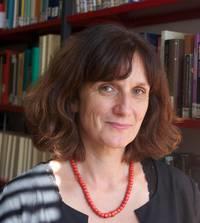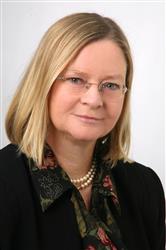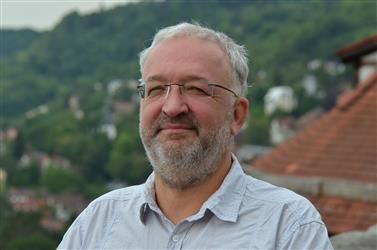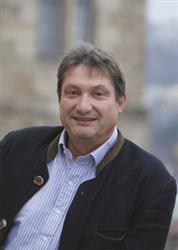ProjektSFB 1070 – RessourcenKulturen - Sozio-kulturelle Dynamiken im Umgang mit Ressourcen
Grunddaten
Akronym:
SFB 1070
Titel:
RessourcenKulturen - Sozio-kulturelle Dynamiken im Umgang mit Ressourcen
Laufzeit:
01.07.2017 bis 30.06.2021
Abstract / Kurz- beschreibung:
Was sind Ressourcen? Ressourcen sind das, was Gesellschaften bewegt. Menschen erzeugen ihre eigenen gesellschaftlichen Grundlagen und sorgen für deren Erhalt, Verfügbarkeit und Nutzung. Gleichzeitig verändern sie im Prozess der Inwertsetzung dieser Ressourcen ihre sozialen Beziehungen. Dies wiederum wirkt auf die Ressourcen zurück, die im Rahmen der gesellschaftlichen Reproduktion ebenfalls transformiert werden. Ressourcen sind somit einerseits Produkte gemeinschaftlichen Handelns, andererseits Quellen der Erneuerung des sozialen Lebens.
Für die zweite Phase des SFB werden auf theoretischer Ebene Begriffe und Konzepte geschärft und auf angewandter Ebene neue interdisziplinäre Akzente gesetzt. Für Ressourcen soll insbesondere der spezifische Wert für die jeweiligen Gesellschaften herausgestellt werden, wie er sich etwa in häufig wiederkehrenden, meist aufwändig organisierten gemeinschaftlichen Handlungen bzw. durch die Investition umfangreicher kollektiver Arbeit zum Ausdruck gebracht und in Objekten, Monumenten, Texten oder Erinnerungen gespeichert wird. Das Verständnis von Ressourcenkomplexen soll durch das Konzept der Gefüge erweitert werden. Diese bestehen aus Phänomenen, die unterschiedliche Arten von Materialität (z B. Metall und Wissen) und Temporalität (z. B. kurz- und langfristige Zustände) besitzen können. Dabei soll besonderes Augenmerk auf Katalysatoren solcher Gefüge gerichtet werden, also auf jene Komponenten, die Neuerungen herbeiführen, Entwicklungen beschleunigen oder Prozesse hemmen. Ressourcen sollen zudem selbst als Prozesse betrachtet und untersucht werden. Stärker als in der ersten Förderphase rücken damit diejenigen Ereignisse in den Vordergrund, die Veränderungen von Ressourcen bedingen.
In der praktischen Umsetzung von Forschungsansätzen haben sich aus der Zusammenarbeit in der ersten Phase neue interdisziplinäre Perspektiven ergeben. Diese manifestieren sich in der verstärkten fachübergreifenden Vernetzung innerhalb der Teilprojekte, etwa zwischen Archäologie und Ethnologie. Ebenfalls aus den Erkenntnissen der ersten Phase haben sich drei neue Themen als interdisziplinär besonders relevant und innovativ erwiesen: ,Materialität‘, ,Wissen‘ sowie ,Bewahrung und Vernichtung‘ von Ressourcen.
Für die zweite Phase des SFB werden auf theoretischer Ebene Begriffe und Konzepte geschärft und auf angewandter Ebene neue interdisziplinäre Akzente gesetzt. Für Ressourcen soll insbesondere der spezifische Wert für die jeweiligen Gesellschaften herausgestellt werden, wie er sich etwa in häufig wiederkehrenden, meist aufwändig organisierten gemeinschaftlichen Handlungen bzw. durch die Investition umfangreicher kollektiver Arbeit zum Ausdruck gebracht und in Objekten, Monumenten, Texten oder Erinnerungen gespeichert wird. Das Verständnis von Ressourcenkomplexen soll durch das Konzept der Gefüge erweitert werden. Diese bestehen aus Phänomenen, die unterschiedliche Arten von Materialität (z B. Metall und Wissen) und Temporalität (z. B. kurz- und langfristige Zustände) besitzen können. Dabei soll besonderes Augenmerk auf Katalysatoren solcher Gefüge gerichtet werden, also auf jene Komponenten, die Neuerungen herbeiführen, Entwicklungen beschleunigen oder Prozesse hemmen. Ressourcen sollen zudem selbst als Prozesse betrachtet und untersucht werden. Stärker als in der ersten Förderphase rücken damit diejenigen Ereignisse in den Vordergrund, die Veränderungen von Ressourcen bedingen.
In der praktischen Umsetzung von Forschungsansätzen haben sich aus der Zusammenarbeit in der ersten Phase neue interdisziplinäre Perspektiven ergeben. Diese manifestieren sich in der verstärkten fachübergreifenden Vernetzung innerhalb der Teilprojekte, etwa zwischen Archäologie und Ethnologie. Ebenfalls aus den Erkenntnissen der ersten Phase haben sich drei neue Themen als interdisziplinär besonders relevant und innovativ erwiesen: ,Materialität‘, ,Wissen‘ sowie ,Bewahrung und Vernichtung‘ von Ressourcen.
Schlüsselwörter:
Ressourcenkomplex
Raumerschließung
Wandlungsprozess
Gesellschaftsentwicklung
Ressourcenbewertung
Material Turn
Beteiligte Mitarbeiter/innen
Leiter/innen
Institut für Ur- und Frühgeschichte und Archäologie des Mittelalters (UFG)
Fachbereich Altertums- und Kunstwissenschaften, Philosophische Fakultät
Fachbereich Altertums- und Kunstwissenschaften, Philosophische Fakultät
SFB 1070 - RessourcenKulturen. Soziokulturelle Dynamiken im Umgang mit Ressourcen
Sonderforschungsbereiche und Transregios
Sonderforschungsbereiche und Transregios
Ansprechpartner/innen
Abteilung für Ethnologie
Fachbereich Asien-Orient-Wissenschaften, Philosophische Fakultät
Fachbereich Asien-Orient-Wissenschaften, Philosophische Fakultät
SFB 923 - Bedrohte Ordnungen
Sonderforschungsbereiche und Transregios
Sonderforschungsbereiche und Transregios
SFB 1070 - RessourcenKulturen. Soziokulturelle Dynamiken im Umgang mit Ressourcen
Sonderforschungsbereiche und Transregios
Sonderforschungsbereiche und Transregios
Fachbereich Wirtschaftswissenschaft
Wirtschafts- und Sozialwissenschaftliche Fakultät
Wirtschafts- und Sozialwissenschaftliche Fakultät
Mathematisch-Naturwissenschaftliche Fakultät
Universität Tübingen
Universität Tübingen
Forschungsbereich für Urgeschichte und Naturwissenschaftliche Archäologie (UFG)
Fachbereich Geowissenschaften, Mathematisch-Naturwissenschaftliche Fakultät
Fachbereich Geowissenschaften, Mathematisch-Naturwissenschaftliche Fakultät
Seminar für Neuere Geschichte
Fachbereich Geschichtswissenschaft, Philosophische Fakultät
Fachbereich Geschichtswissenschaft, Philosophische Fakultät
SFB 923 - Bedrohte Ordnungen
Sonderforschungsbereiche und Transregios
Sonderforschungsbereiche und Transregios
Forschungsbereich für Urgeschichte und Naturwissenschaftliche Archäologie (UFG)
Fachbereich Geowissenschaften, Mathematisch-Naturwissenschaftliche Fakultät
Fachbereich Geowissenschaften, Mathematisch-Naturwissenschaftliche Fakultät
Hardenberg, Roland
Abteilung für Ethnologie
Fachbereich Asien-Orient-Wissenschaften, Philosophische Fakultät
Fachbereich Asien-Orient-Wissenschaften, Philosophische Fakultät
SFB 1070 - RessourcenKulturen. Soziokulturelle Dynamiken im Umgang mit Ressourcen
Sonderforschungsbereiche und Transregios
Sonderforschungsbereiche und Transregios
Herrmann, Virginia
Institut für die Kulturen des Alten Orients (IANES)
Fachbereich Altertums- und Kunstwissenschaften, Philosophische Fakultät
Fachbereich Altertums- und Kunstwissenschaften, Philosophische Fakultät
Institut für Geschichtliche Landeskunde und Historische Hilfswissenschaften
Fachbereich Geschichtswissenschaft, Philosophische Fakultät
Fachbereich Geschichtswissenschaft, Philosophische Fakultät
SFB 923 - Bedrohte Ordnungen
Sonderforschungsbereiche und Transregios
Sonderforschungsbereiche und Transregios
Biblisch-Archäologisches Institut
Evangelisch-Theologische Fakultät
Evangelisch-Theologische Fakultät
Abteilung für Ethnologie
Fachbereich Asien-Orient-Wissenschaften, Philosophische Fakultät
Fachbereich Asien-Orient-Wissenschaften, Philosophische Fakultät
SFB 1070 - RessourcenKulturen. Soziokulturelle Dynamiken im Umgang mit Ressourcen
Sonderforschungsbereiche und Transregios
Sonderforschungsbereiche und Transregios
Institut für Ur- und Frühgeschichte und Archäologie des Mittelalters (UFG)
Fachbereich Altertums- und Kunstwissenschaften, Philosophische Fakultät
Fachbereich Altertums- und Kunstwissenschaften, Philosophische Fakultät
Fachbereich Geowissenschaften
Mathematisch-Naturwissenschaftliche Fakultät
Mathematisch-Naturwissenschaftliche Fakultät
Forschungsbereich Geographie
Fachbereich Geowissenschaften, Mathematisch-Naturwissenschaftliche Fakultät
Fachbereich Geowissenschaften, Mathematisch-Naturwissenschaftliche Fakultät
SFB 1070 - RessourcenKulturen. Soziokulturelle Dynamiken im Umgang mit Ressourcen
Sonderforschungsbereiche und Transregios
Sonderforschungsbereiche und Transregios
Lipps, Johannes
Institut für Klassische Archäologie
Fachbereich Altertums- und Kunstwissenschaften, Philosophische Fakultät
Fachbereich Altertums- und Kunstwissenschaften, Philosophische Fakultät
Philologisches Seminar
Fachbereich Altertums- und Kunstwissenschaften, Philosophische Fakultät
Fachbereich Altertums- und Kunstwissenschaften, Philosophische Fakultät
SFB 923 - Bedrohte Ordnungen
Sonderforschungsbereiche und Transregios
Sonderforschungsbereiche und Transregios
SFB 1070 - RessourcenKulturen. Soziokulturelle Dynamiken im Umgang mit Ressourcen
Sonderforschungsbereiche und Transregios
Sonderforschungsbereiche und Transregios
Seminar für Alte Geschichte
Fachbereich Geschichtswissenschaft, Philosophische Fakultät
Fachbereich Geschichtswissenschaft, Philosophische Fakultät
SFB 923 - Bedrohte Ordnungen
Sonderforschungsbereiche und Transregios
Sonderforschungsbereiche und Transregios
SFB 1070 - RessourcenKulturen. Soziokulturelle Dynamiken im Umgang mit Ressourcen
Sonderforschungsbereiche und Transregios
Sonderforschungsbereiche und Transregios
Institut für die Kulturen des Alten Orients (IANES)
Fachbereich Altertums- und Kunstwissenschaften, Philosophische Fakultät
Fachbereich Altertums- und Kunstwissenschaften, Philosophische Fakultät
SFB 1070 - RessourcenKulturen. Soziokulturelle Dynamiken im Umgang mit Ressourcen
Sonderforschungsbereiche und Transregios
Sonderforschungsbereiche und Transregios
Institut für Klassische Archäologie
Fachbereich Altertums- und Kunstwissenschaften, Philosophische Fakultät
Fachbereich Altertums- und Kunstwissenschaften, Philosophische Fakultät
Mathematisch-Naturwissenschaftliche Fakultät
Universität Tübingen
Universität Tübingen
Institut für Klassische Archäologie
Fachbereich Altertums- und Kunstwissenschaften, Philosophische Fakultät
Fachbereich Altertums- und Kunstwissenschaften, Philosophische Fakultät
Mathematisch-Naturwissenschaftliche Fakultät
Universität Tübingen
Universität Tübingen
Fachbereich Geowissenschaften
Mathematisch-Naturwissenschaftliche Fakultät
Mathematisch-Naturwissenschaftliche Fakultät
Forschungsbereich Geographie
Fachbereich Geowissenschaften, Mathematisch-Naturwissenschaftliche Fakultät
Fachbereich Geowissenschaften, Mathematisch-Naturwissenschaftliche Fakultät
Staecker, Jörn
Institut für Ur- und Frühgeschichte und Archäologie des Mittelalters (UFG)
Fachbereich Altertums- und Kunstwissenschaften, Philosophische Fakultät
Fachbereich Altertums- und Kunstwissenschaften, Philosophische Fakultät
Philologisches Seminar
Fachbereich Altertums- und Kunstwissenschaften, Philosophische Fakultät
Fachbereich Altertums- und Kunstwissenschaften, Philosophische Fakultät
Institut für Empirische Kulturwissenschaft (Ludwig-Uhland-Institut) (LUI)
Fachbereich Sozialwissenschaften, Wirtschafts- und Sozialwissenschaftliche Fakultät
Fachbereich Sozialwissenschaften, Wirtschafts- und Sozialwissenschaftliche Fakultät
Institut für Ur- und Frühgeschichte und Archäologie des Mittelalters (UFG)
Fachbereich Altertums- und Kunstwissenschaften, Philosophische Fakultät
Fachbereich Altertums- und Kunstwissenschaften, Philosophische Fakultät
Conrad, Ruth
Evangelisch-Theologische Fakultät
Universität Tübingen
Universität Tübingen
Institut für Ur- und Frühgeschichte und Archäologie des Mittelalters (UFG)
Fachbereich Altertums- und Kunstwissenschaften, Philosophische Fakultät
Fachbereich Altertums- und Kunstwissenschaften, Philosophische Fakultät
Forschungsbereich für Urgeschichte und Naturwissenschaftliche Archäologie (UFG)
Fachbereich Geowissenschaften, Mathematisch-Naturwissenschaftliche Fakultät
Fachbereich Geowissenschaften, Mathematisch-Naturwissenschaftliche Fakultät
Institut für Ur- und Frühgeschichte und Archäologie des Mittelalters (UFG)
Fachbereich Altertums- und Kunstwissenschaften, Philosophische Fakultät
Fachbereich Altertums- und Kunstwissenschaften, Philosophische Fakultät
Lokale Einrichtungen
SFB 1070 - RessourcenKulturen. Soziokulturelle Dynamiken im Umgang mit Ressourcen
Sonderforschungsbereiche und Transregios
Universität Tübingen
Universität Tübingen
Geldgeber
Bonn, Nordrhein-Westfalen, Deutschland












